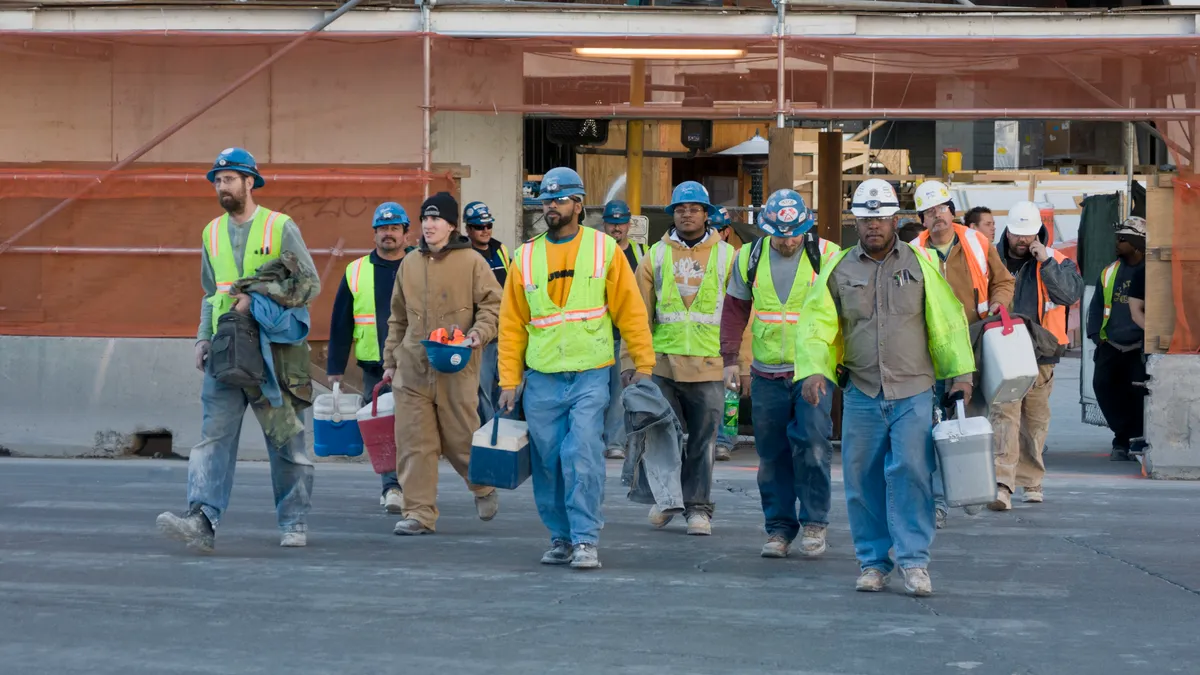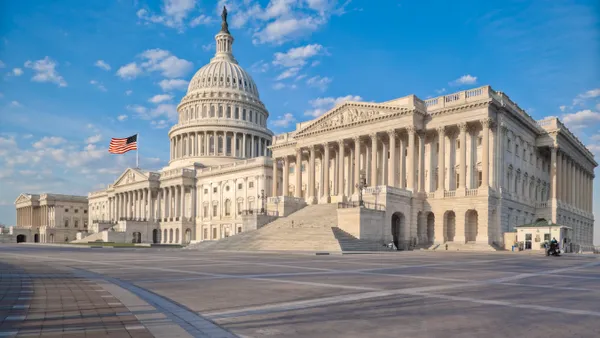Dive Brief:
- The California Dept. of Industrial Relations this week issued citations totaling $597,933 to Chatsworth, California, concrete subcontractor Universal Structural Building Corp. for unpaid wages and other related penalties and fines. The department said Universal underpaid 62 workers on two California projects — one in the Los Angeles metro area and the other in Ventura.
- Across both projects, the department said Universal owes $62,207 in unpaid wages; $64,131 in liquidated damages; $4,900 in overtime; $15,950 for wage statement violations; $330,345 in waiting time penalties; and $120,400 in civil penalties, which include $15,000 for misclassifying an employee as exempt.
- On one of the projects, the department found that general contractor J.H. McCormick Inc. is jointly and severally responsible for $68,657 of the amount Universal owes under a wage theft law that went into effect in January 2018. The department filed a mechanics lien on behalf of those workers as well. On the second project, Universal entered into its contract before the new law went into effect, so the general contractor could not be held responsible for the subcontractor's unpaid wages.
Dive Insight:
The largest amount the state fined Universal is for what is referred to as "waiting time." This figure was calculated by multiplying each employee's rate of pay by the number of days left unpaid, up to a maximum of 30 days. Liquidated damages are equal to the amount of unpaid wages plus interest.
The new California wage law that went into effect last year makes general contractors responsible for their subcontractors' unpaid wages and benefits plus interest but not penalties or liquidated damages. The regulation also gives general contractors the right to examine their subcontractors' records during the project in order to ensure that they are complying with state wage laws, as well as the right to withhold payment if they are not.
However, ultimately, the general contractor is responsible for all workers' pay, even if it has already paid the offending subcontractors in full.
Other states have also started to hand general contractors the responsibility of making sure all workers on a project get paid what they are owed.
Oregon passed a law last year that holds general contractors responsible for their subcontractors' wage obligations but only if the subcontractor in question has not yet been paid in full. Maryland's new wage protection regulations, which are similar in scope to California's, took effect on Oct. 1, 2018. The Illinois House of Representatives advanced a similar measure in April, and it is currently being considered in the state Senate's judiciary committee.













